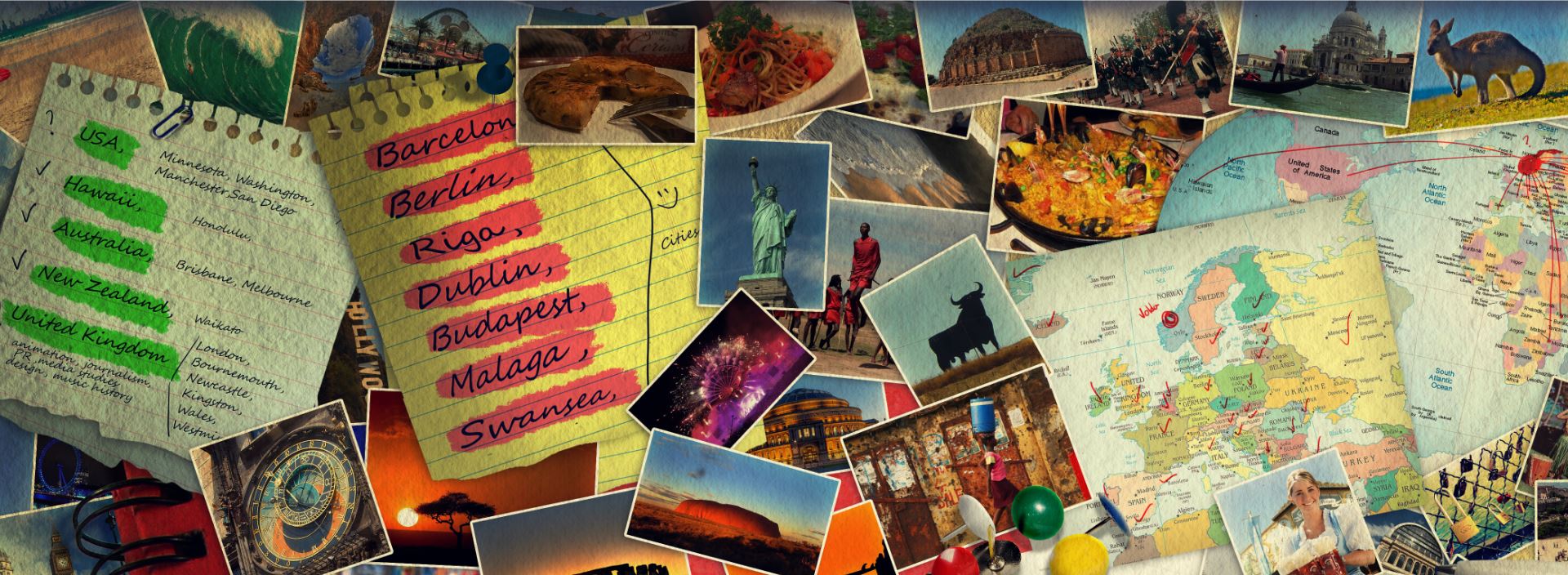Certificate of Internationalisation
Do you want to document your international competencies and at the same time have fun? If so, we have developed the perfect scheme for you!

Research shows that students who have been on exchange or completed internships abroad increase their intercultural understanding and communication, flexibility and tolerance. These are competencies many employers are looking for. Therefore, the International Office has developed the Certificate of Internationalisation, a diploma awarded to students who have shown a particular international engagement throughout their studies.
In order to be eligible for the certificate, a student must be able to document having completed various international activities. Read more about the criteria and other factors related to the Certificate of Internationalisation underneath.
Detailed criteria for the Certificate of Internationalisation
The student must be able to document having completed the following activities in order to be awarded the certificate:
1. Having completed an exchange, placement or field work period abroad of minimum 4 weeks duration, integrated in the study programme at VUC
The minimum length of such stay is 4 weeks, but most student exchange and placement periods are longer and if so the entire period must be completed.
2. Having been a buddy for international students at VUC for one semester
To sign up as a semester buddy, you must send an e-mail to utveksling@hivolda.no. To be a Semester Buddy for international students demands more than just being active in the Buddy Week at the start of the semester. One has to engage with international students also on a monthly basis during the whole semester.
3. Having presented on stands at the VUC International Day
The VUC International Day is held every year the first week of February. Students who are interested in presenting on stands must contact the International Office. The International Office will help students decorate the stands and also explain the concept of the International Day.
How do you get the Certificate of Internationalisation?
Students must apply to be considered for the Certificate of Internationalisation, by sending an e-mail with necessary documentation to the International Office (utveksling@hivolda.no). The International Office assesses whether the student fulfils the criteria and awards the diploma to students who meet the requirements.
Note: The Certificate of Internationalisation is a separate award and will not be mentioned in the general Diploma/Diploma Supplement from VUC and is not registered in the VUC Student Database (Felles studentsystem - FS).
Who can get the Certificate of Internationalisation?
The Certificate of Internationalisation can be awarded to students enrolled in a full-cycle study programme at VUC. International students at VUC cannot apply for the certificate unless they are registered as active students on a study program (e.g. Bachelor-, Master- or PhD-program).
When do you have to complete the various activities in order to receive the certificate?
It is not a requirement that all activities take place at the same time or in a given sequence, but the mobility period abroad must be an integrated part of the study programme at VUC. International experiences and/or activities from before the student began the studies at VUC cannot be taken into consideration.
How can students document the completion of required activities?
For exchange semesters and internships abroad, the VUC International Office will already have the necessary documentation. For other activities, the student must provide attestations. Students who are uncertain of how to document relevant activities may contact the VUC International Office.
Why do we offer a Certificate of Internationalisation?
The aim of the Certificate of Internationalisation is to reward students who are particularly active in internationalisation efforts and also to encourage students to become more active. By awarding this certificate we also hope to place more emphasis and visibility on internationalisation at VUC.
